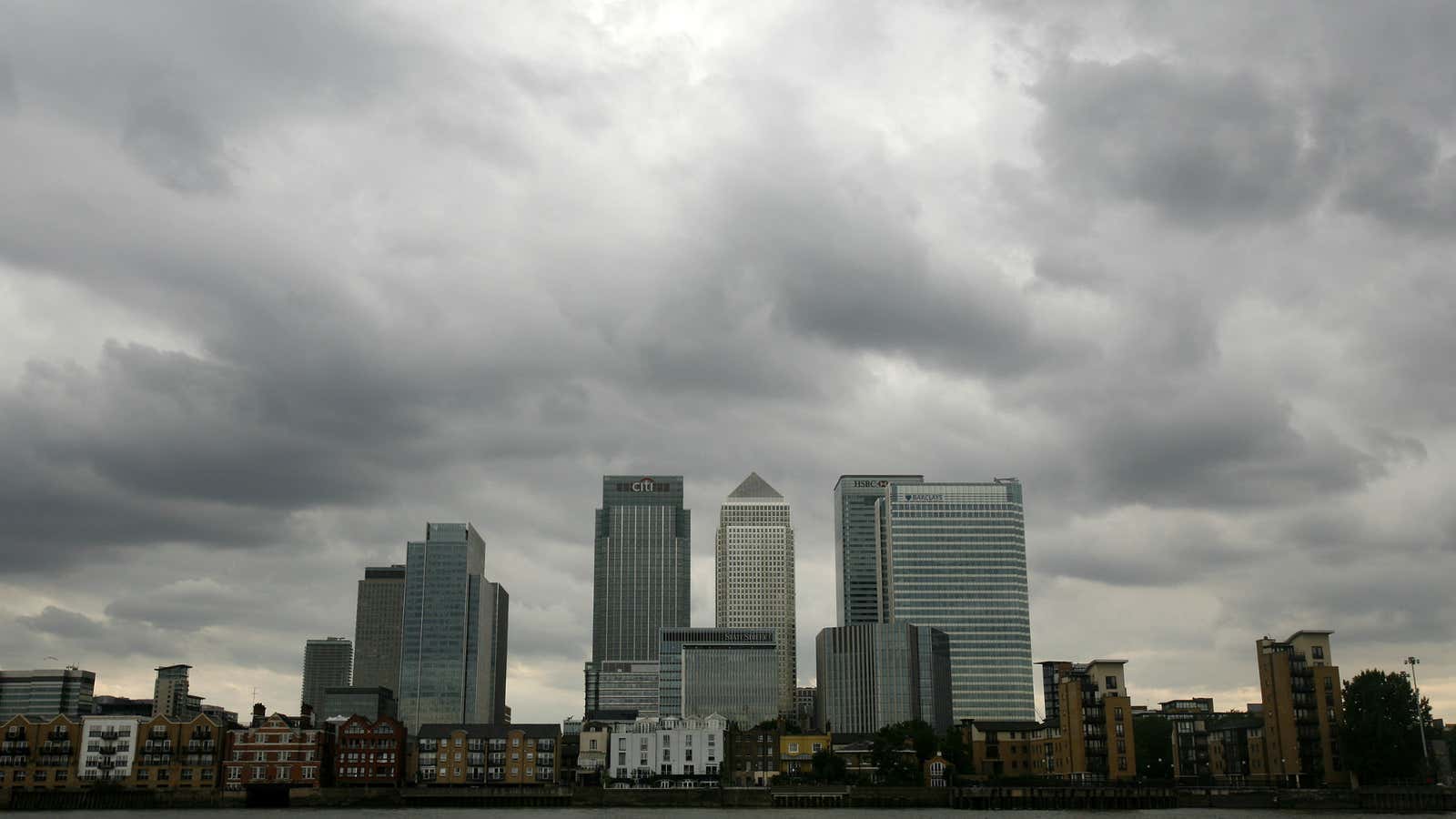Ten years after the financial crisis, the Pew Research Center has asked people in 27 countries—representing two-thirds of global GDP—how they feel about their home economies and the future.
The results are distressingly bleak.
In most countries, more people said the national economic situation is better than in 2009, when the global economy was deep in recession. That’s about the extent of the good news.
In Italy, Argentina, and Mexico the share of people who see things as good is smaller than in 2009. Yet even as the outlook generally tends to improve, only in 12 of the 27 countries did the majority of people say current economic conditions were good. The country with the brightest outlook was the Netherlands, with 85% saying current conditions were good, followed by 81% in Sweden. At the other end of the spectrum just 4% of Greeks and 9% of Brazilians could say the same.
Cast back further into the past and most people believe those were better days. In 15 countries, the majority of people say the financial situation for the average person is worse today than 20 years ago. Only in seven countries—which include South Korea, Poland, and India—do a majority of people think today is better than 20 years ago.
Economic nostalgia has a strong political element. A more optimistic view of the past is stronger in Europe among people who support right-wing populist parties, Pew said. In Germany, 64% of supporters of the Alternative for Germany (AfD) party believe that 20 years ago was better. If the political party you support is in power, you are also more likely to believe that things are better now. In the US, 44% of Republicans say today is better, compared to just 22% of Democrats.
The most worrying in trend is how pessimistic expectations for the future are. In 18 of the 27 nations, at least half of the respondents believe that children today will grow up to be worse off financially than their parents. In the US, 57% said children would be worse off, a prediction reflected in other data: A massive study by researchers at Stanford a few years ago found that just half of children born in the 1980s grew up to be earn more than their parents, whereas more than 90% of children born in 1940 did.
Meanwhile 70% of UK respondents say children will grow up to be worse off, a larger share than in Italy (61%) and Greece (69%). This comes on the heels of predictions by the International Monetary Fund that even a smooth Brexit would lead to just 1.5% GDP growth in the UK this year and next. The most pessimistic countries were France (80%) and Japan (76%).
There’s a split among emerging market economies. In Indonesia, the Philippines, India, and Nigeria, more than two thirds said children today would be better off. In Brazil, South Africa, Mexico, Kenya, and Tunisia, more than half said children would be worse off. Even where people think the economy is good today, they can’t always say the same for the future.
